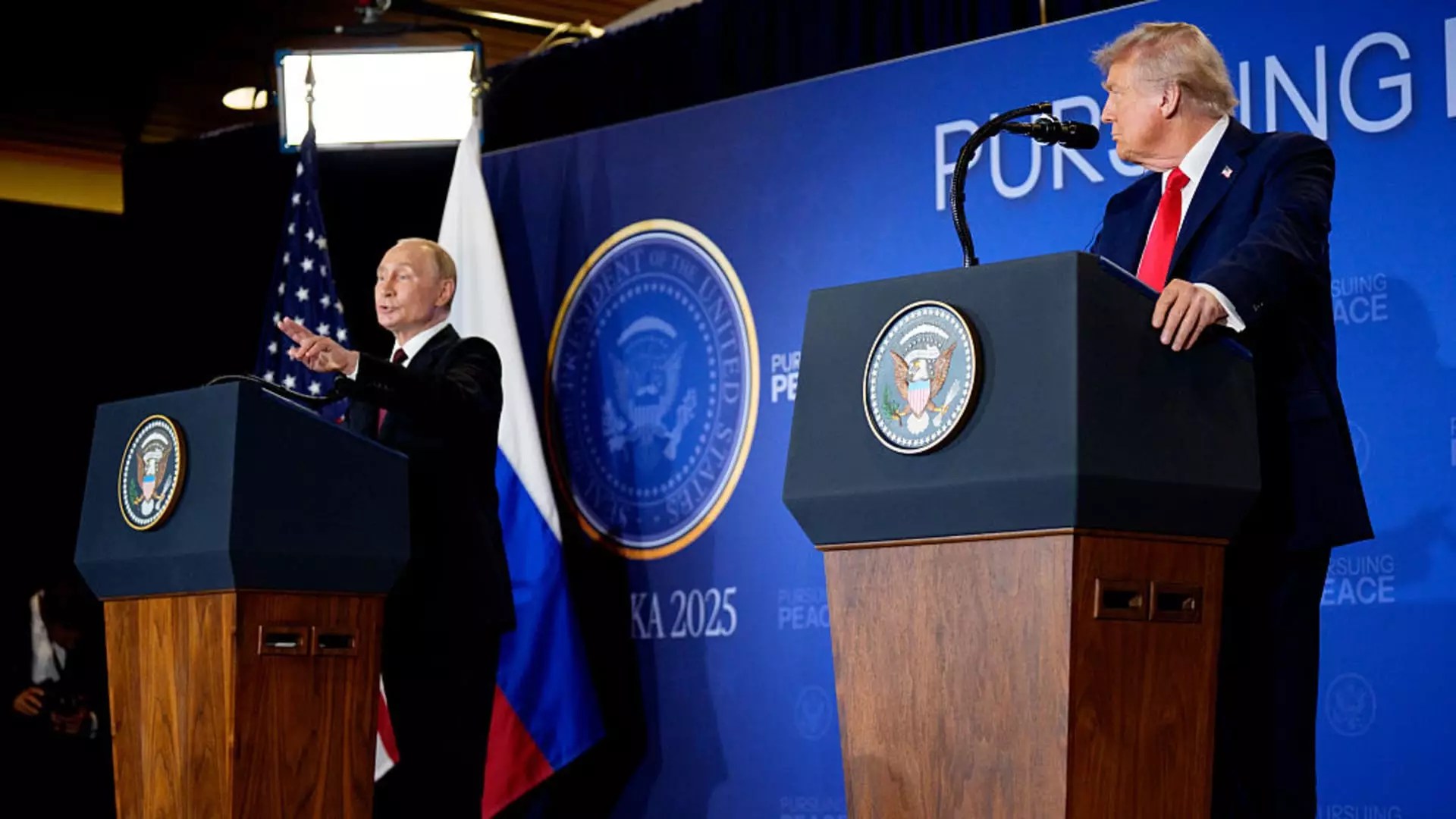The recent summit between U.S. President Donald Trump and Russian President Vladimir Putin unfolded amidst high expectations and significant geopolitical tension, yet it ultimately revealed the profound limitations of diplomacy marred by mutual distrust. Both leaders approached the meeting with guarded optimism, but beneath their language of progress lies a stark reality: genuine breakthroughs remain elusive. Trump’s characterization of the talks as “productive” masks a deeper truth—agreements, if any, are fragile and superficial. It’s painfully clear that both sides are content to engage in diplomatic performances that serve primarily their internal narratives rather than addressing the complex crises at hand, especially the ongoing war in Ukraine.
The White House’s attempt to downplay the significance of this summit reflects a cynical understanding that what transpires at such high levels often lacks substantive results. The delegation’s insistence that the event was merely “a listening exercise” underscores the uncertainty surrounding its actual aims. No concrete commitments about ceasefires or peace negotiations emerged, and Ukraine remained conspicuously excluded from discussions—a sign that the approach taken by Washington and Moscow is to manage fire rather than extinguish it. These diplomatic tokes, veiled in vague words, reveal a disturbing reluctance to confront the core issue: Can these superpowers genuinely negotiate peace without risking sovereignty and regional stability?
The Illusion of Improvement in U.S.-Russia Relations
Vladimir Putin’s assertion that the meeting was a “starting point” for better ties and conflict resolution offers little reassurance. Historically, such statements often serve as diplomatic cover for stagnation rather than progress. The Cold War-era relations between the United States and Russia were built on mutual suspicion and strategic deception, and today’s headlines about “headway” are reminiscent of the same performative dance. The fact that Putin emphasized Russia’s relations had “fallen to the lowest point since the Cold War” exposes the depth of current antagonism, yet also hints at the political comfort of embracing hostility as a constant.
President Trump’s remarks, emphasizing “many points agreed,” appear to be an attempt to cast diplomatic success where none might objectively exist. His comments about negotiating with NATO and Zelenskyy, suggesting that they are “ultimately” the deciders, are dangerously naive. It underscores a flawed belief that diplomatic gestures from the U.S. can steer the course of a complex, multi-layered geopolitical conflict. The reality is that the war in Ukraine—one of the most serious crises of our time—remains unresolved, with dialogue between the major players often superficial and designed for domestic consumption rather than genuine peace.
Strategic Rhetoric versus Reality
The U.S. political establishment’s approach to Russia, especially under the guise of liberal internationalism, often swings between hawkish hostility and fragile engagement. Viewing diplomacy as a tool for strategic recalibration rather than a genuine pursuit of peace skews American foreign policy, disadvantaging vulnerable populations, especially in Ukraine. The post-summit narrative, especially in outlets sympathetic to Kremlin narratives, paints these talks as a form of victory for Moscow. This is a dangerous misconception; it risks emboldening Putin’s regime by insinuating that diplomatic gestures are tantamount to recognition of legitimacy or victory.
Meanwhile, Ukraine’s precarious position remains overlooked by Western powers eager to avoid alienating Russia. President Zelenskyy’s call for a trilateral meeting underscores the urgency of inclusive dialogue—yet, the West continues to prioritize its diplomatic optics over tangible peace efforts. The refusal to incorporate Ukraine fully into negotiations is a reflection of a geopolitical calculus rooted more in maintaining influence than fostering peace. Such a stance leaves Ukraine vulnerable to further territorial loss and death, revealing an uncomfortable truth about how superpower diplomacy often sacrifices smaller nations’ sovereignty for strategic convenience.
This summit, in its scope and outcomes, exemplifies the peril of strategic ambiguity. While superficial agreements are heralded as progress, the underlying issues—sovereignty, territorial integrity, and regional stability—remain unresolved. For those committed to a center-left liberal stance that champions human rights and international cooperation, this performance exposes the gaps between rhetoric and action. Diplomacy must go beyond talk; it must involve a steadfast commitment to justice, transparency, and genuine peace—values that are regrettably lacking in these high-stakes games of geopolitical posturing.

